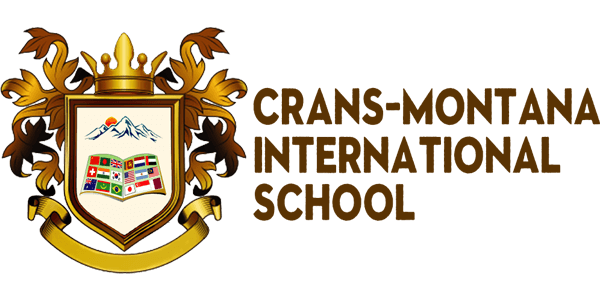-
Assessment Policy
CMIS Mission
The Mission of Crans-Montana International School (CMIS) is to educate the children of the world to make them lifelong learners as they will be in the productive places as leaders in the global community, who will be committed to a sustainable future.
Our Philosophy
- Being dedicated to a culture of excellence.
- Upholding ethical practices at all times in local and international arenas.
- Being passionate in whatever we do.
- Respecting and caring for each other, with their differences.
- Openness in communication.
- Creating peaceful environment.
Assessment Philosophy
Crans-Montana International School is an IB PYP candidate school, offering the Primary Years Programme (PYP). Our approach to assessment reflects the philosophy and objectives of these programmes.
The main objective of assessment at CMIS is to provide students with feedback on their learning, in order to allow students to learn and improve further. Teachers are expected to use assessment results to inform their planning of further learning experiences. Frequent, regular and continuous assessment is integral to all teaching and learning.
We believe assessment should:
- Be varied – through the use of different tools and strategies, both formal and informal.
- Be implemented in formative and summative format.
- Be structured in a way that takes into consideration individual student’s needs. Following Individual Education Plan (IEP).
- Be transparent to all stakeholders provide opportunities and information to give timely feedback on the learning process. Involve teachers, students, peers and parents with clear criteria for success.
- Allow students to work independently and have agency in regards to their knowledge.
- Include all the PYP essential elements– not just knowledge and skills.
- Guidance of student’s learning engagement and reflections.
PYP Assessment in Crans-Montana International School
Assessment – How will we know what we have learned?
Assessment is essential to teaching and learning process in the school. The prime objective of assessment in the PYP is to provide feedback on the learning process. (Making the PYP Happen, 2009, International Baccalaureate) the assessment culture (e.g., policy, processes and practices) developed in the school must align with the PYP philosophy and objectives of the programme, which includes incorporating the assessment of inquiry based learning that is central to the PYP curriculum framework. Both elements of inquiry based learning must be reflected in the school’s assessment approach: ‘assessment on the process of inquiry as well as the product(s) of inquiry’ (IBO 2009, p. 44)
Types of Assessment in Crans-Montana International School
- Formative
Most of the ongoing assessment in the PYP is formative in nature, meant to inform planning and instruction. Formative assessment is assessment for learning and plays an integral part in the teaching and learning cycle. - Summative
Summative assessment tasks are designed to give information on what students can do, know and understand at the end of a unit of work. Each Unit of Inquiry has a summative assessment task(s) at the end of the unit: Feedback on which is reported on in ClassDojo for parents to see.
Peer- and Self- Assessment
- Students in the PYP are given regular opportunities to assess their own and each other’s work, stressing the importance of reflection in the learning process. When appropriate, students may also be actively involved in the setting criteria for this work to be assessed.
Assessment Tools and Strategies
CMIS uses a wide variety of IB PYP assessment tools and strategies. Teachers are expected to use the most appropriate tool or strategy that can give most reliable information to all stakeholders. We aim all students to have the opportunity to be successful by showing their learning achievement.
- PYP Assessment strategies:
- Observations
- Performance assessments
- Process-focused assessments
- Selected responses
- Open – ended tasks
- PYP Assessment tools:
- Rubrics
- Checklists
- Anecdotal records
- Continuums
- Exemplars
Type of Evidence of Assessment
Teachers use a range of methods to document the evidence of student learning and understanding. These include video, audio, photographs and graphic representations. Teachers also have written records of standard observations, comments and explanations, as well as annotated pieces of each student’s work that form part of that student’s portfolio.
How do we communicate the information:
Reporting on assessment at CMIS includes communicating what students know, understand and can do. Reporting involves parents, students and teachers as partners and is honest, comprehensive and understandable to all stake holders.
Report Cards
Report cards will be distributed three times in an academic year. Every report cards will be distributed after 12 school weeks approximately. Report cards will be distributed as a digital and hard copy report. Parents could download the report cards using the link that is given by the school.
Report cards are filled by the homeroom and specialist teachers. Teachers mark the effort based on student’s progress and achievements during the assessment. The marks should follow the indicators set up by school. Teachers are expected to write comments as an explanation of their marks following the IB scope and sequence standards.
Parent-Teachers Conference (PTC) and report Cards Schedule:
Parents are invited to meet their child’s teachers to discuss academic progress and social-emotional development. Parents may meet the single subject teachers (specialist teachers) during PTC. The durations for PTC are not more than 20 minutes with the homeroom teachers and maximum 10 minutes with Specialist teachers. Teachers are expected to share all the evidence of student’s progress, strategies of improvement and the implementation of these strategies for parents to support their child at home.
Time
Programs
3rd week of the academic year
Goal setting conference
End of Autumn Term
1st Report Card and PTC
End of Winter Term
2nd Report Cards and PTC
End of Summer Term
3rd Report Card and Review of goal setting conference
Student- Led Conferences
During Student-Led Conferences, students lead their parents through conference, using their portfolios as a tool to talk about their learning engagement process. Students share their successes and their challenges, and guide their parents through some typical learning experiences in different curriculum areas.
Students and their parents also visit the single subject to share their learning in these curriculum areas. Student-Led Conferences aim to help students become confident and reflective learners. Teachers play an active role during the preparation for these conferences, but do not do conference with parents on this day, to ensure ownership stays with the students. In case the parents would like to have a conference with the teacher, it could be scheduled in the next working days.
PYP Exhibition:
The exhibition is intended to be a collaborative and student-led inquiry during which students can demonstrate agency and take responsibility for their own learning (IBO, 2008). The exhibition takes place in the final year of the PYP and is the culmination of a substantial piece of research involving group collaboration, inquiry, social action and a presentation to an audience.
Our fifth grade students are expected to carry out an extended, collaborative inquiry project, under the guidance of their teachers. The inquiry project allows them to demonstrate synthesis and understanding of the PYP essential elements (knowledge, concepts, skills, attitudes, and action), and sharing them with the whole school community. It also provides an opportunity for students to exhibit the learner profile attributes that have been developing throughout their engagement with the PYP. Students will be able to choose real-life issues or problems, which will then be explored and investigated in the exhibition. The exhibition will take place in the academic year 2020-2021.
Portfolios
A portfolio is a record of students’ involvement in learning which is designed to demonstrate success, growth, higher-order thinking, creativity, assessment strategies and reflection. A portfolio is a celebration of an active mind at work. It provides a picture of each student’s progress and development over a period of time both as individual and group learners. It enables students to reflect with teachers, parents and peers in order to identify their strengths and growth as well as areas for improvement, and then to set individual goals and establish teaching and learning plans (Making PYP Happen, page 50). In CMIS all students from PG to Grade – 5 maintain a portfolio. Portfolio for CMIS students are maintained in hard copy binder. At the end of each term the portfolio is sent to the parents for a week observation. During the final term, all students’ portfolio are handed over to the parents. An essential agreement of the portfolio is kept in the beginning of the portfolio.
School Communication on the Assessment policy:
We communicate with parents regarding the school’s assessment policy via Classdojo and our school website.
Review Cycle
As a grade level, teachers meet for collaborative reflection throughout the year. During this time, teachers review assessment data and reflect on instructional practices. Teachers are expected to complete reflections regarding the units of inquiry. Grade levels also provide feedback to the PYP Curriculum Leadership Team.
Note:
This Assessment Policy was developed between February and August 2017. All staff at Crans – Montana International School was involved in the development of the philosophy statement. This policy is published on the staff portal and all members of staff are aware of its location and content. Updates will be made to this policy on an annual basis.
Policy review by the following staff members:
Ms. Loretta Dias -‐ Head of School
Jalal Uddin – PYP Coordinator
Pushpita Nandy – Grade 5 Home room teacher
Rossalyn Ulfah – KG Home room teacherDate: 5th May 2019
- Home
- Explore CMIS
- -- Welcome
- -- Vision & Mission
- -- Organogram
- -- Our Leadership
- -- Faculty
- -- Our Classes
- -- Assessment Policy
- -- Language Policy
- -- Library
- Admissions
- -- Visit CMIS
- -- Application Process
- -- FAQ
- -- Apply Online
- Curriculum
- -- Early Years
- -- Elementary School
- -- Secondary School
- -- Learning Support
- -- Counseling
- -- Athletics
- -- Music
- -- Performing Arts
- School Life
- -- Calendar
- -- News Letter
- Contact US
- -- Careers
- -- Directions
- -- Dhaka Campus
- -- Chattogram Campus
- Blog


